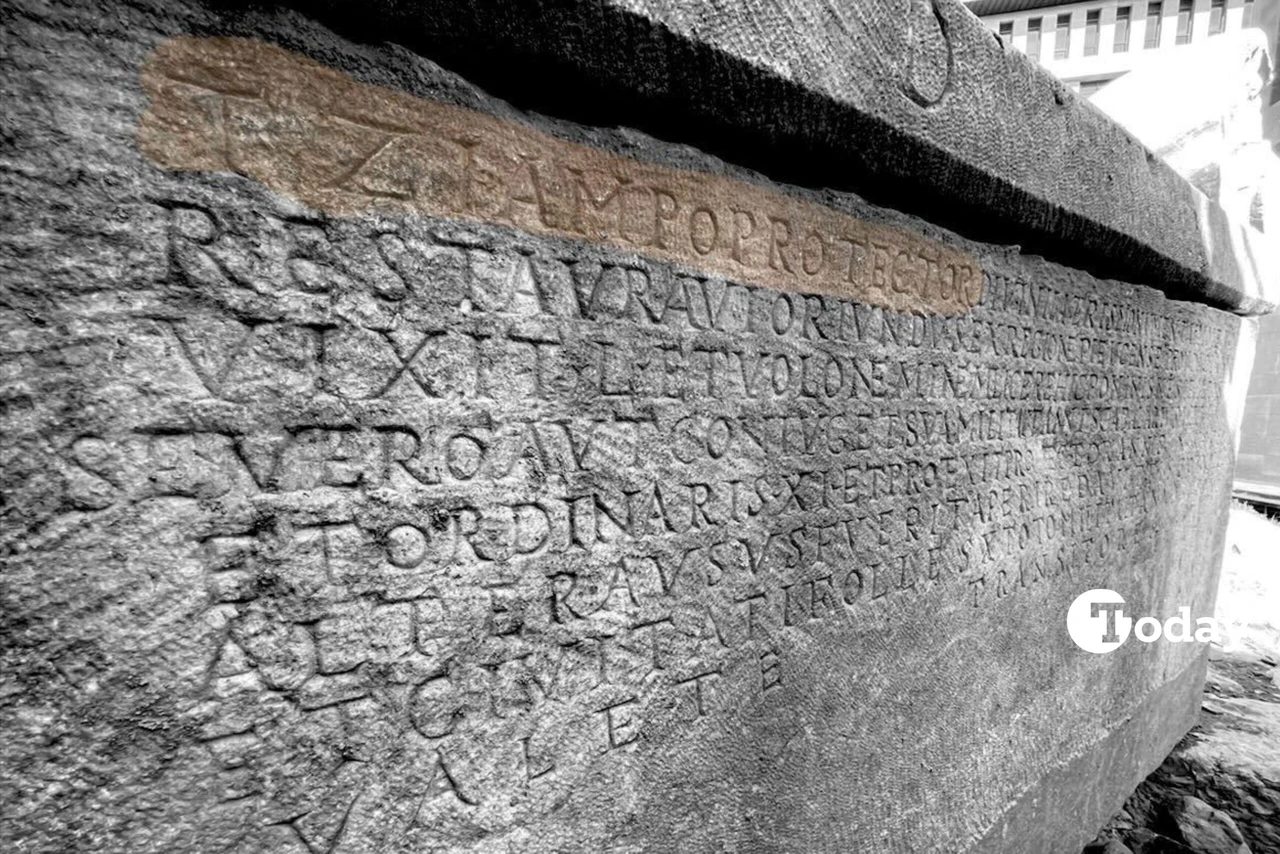Ancient key ceremony revived in Türkiye’s Stratonikeia after 3,500 years
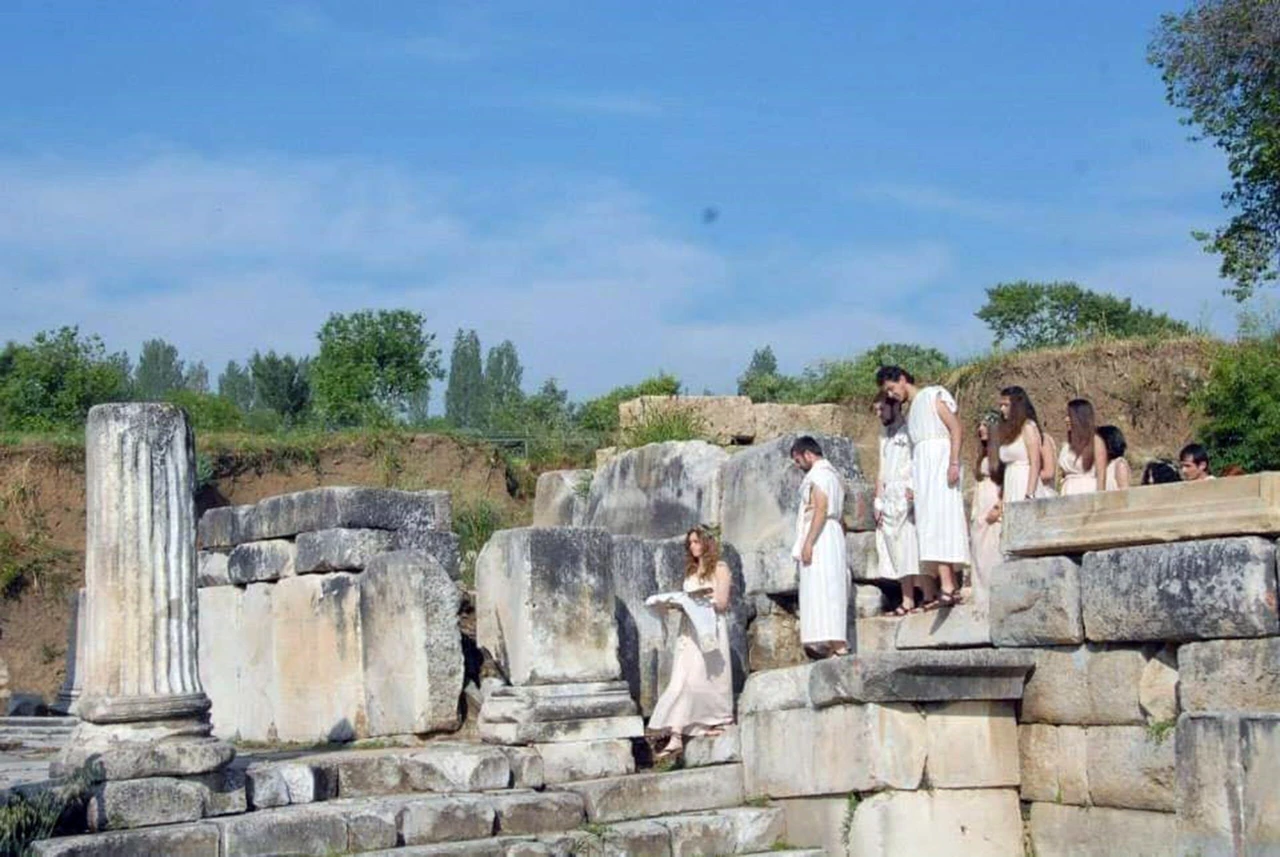 Students from Mugla Sitki Kocman University performing a symbolic key-carrying ceremony between the ancient cities of Lagina and Stratonikeia, Yatagan, Türkiye, October 9, 2024. (IHA Photo)
Students from Mugla Sitki Kocman University performing a symbolic key-carrying ceremony between the ancient cities of Lagina and Stratonikeia, Yatagan, Türkiye, October 9, 2024. (IHA Photo)
On October 9, 2024, a symbolic key ceremony will take place between Lagina and Stratonikeia in southwestern Türkiye.
This re-enactment revives a 3,500-year-old tradition in which the religious center of Lagina honored its connection to the political hub of Stratonikeia. The ceremony involves students from Mugla Sitki Kocman University’s Cultural Heritage Community and is supported by local authorities and cultural organizations.
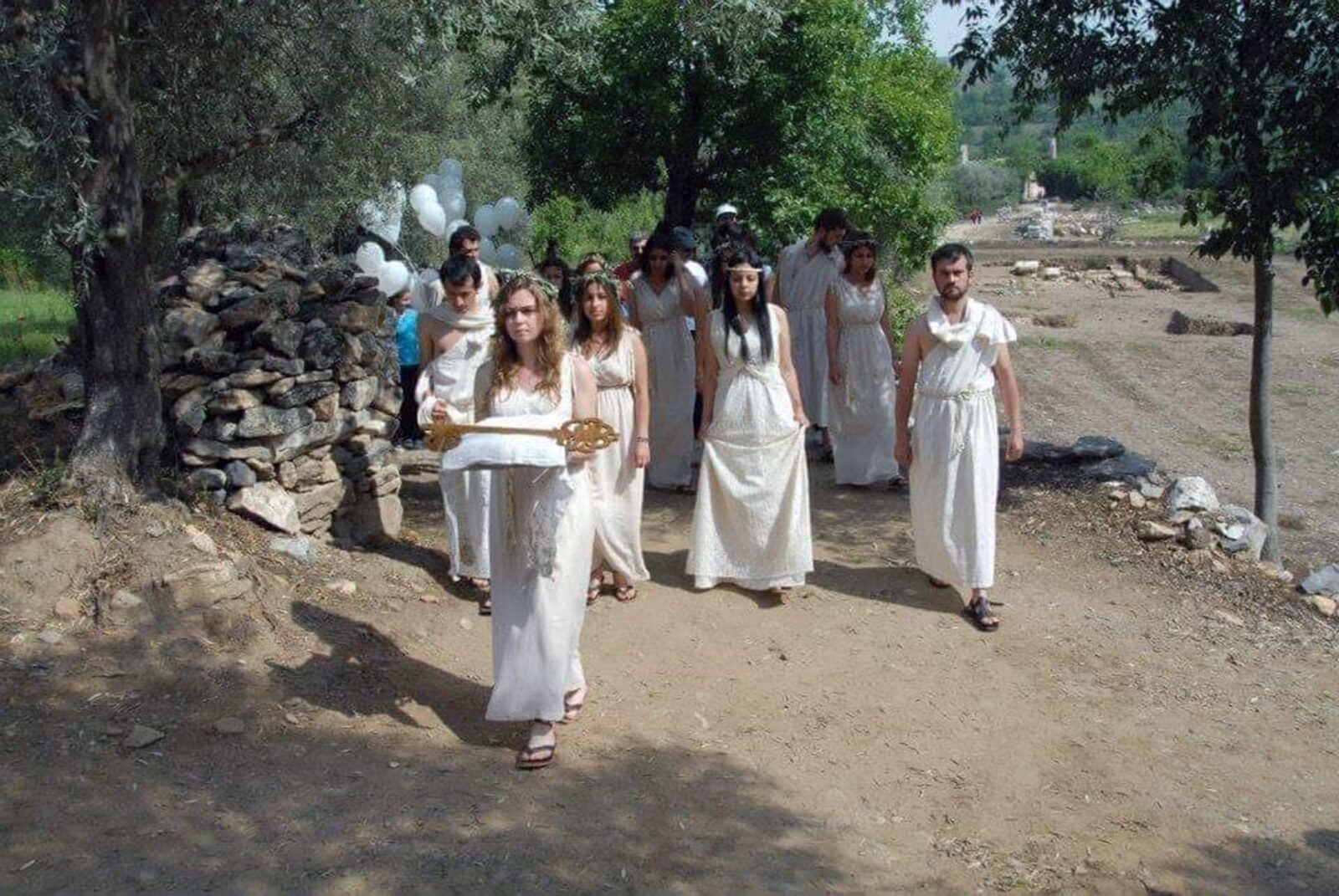
Turkish students recreate ancient procession in traditional attire
The ceremony began at 10:30 a.m. at the Propylon of the Hekate Sanctuary in Lagina, with students dressed in garments inspired by those worn thousands of years ago. The participants will then walk a symbolic path from Lagina to Stratonikeia’s Bouleuterion (Council House), where local officials will receive them at 11:30 a.m.
Bekir Tosun, one of the organizers, said, “This re-enactment is a tribute to the deep historical connection between Lagina and Stratonikeia.” The student carrying the key will present it in a gesture symbolizing Lagina’s submission to Stratonikeia’s political leadership, just as was done centuries ago.
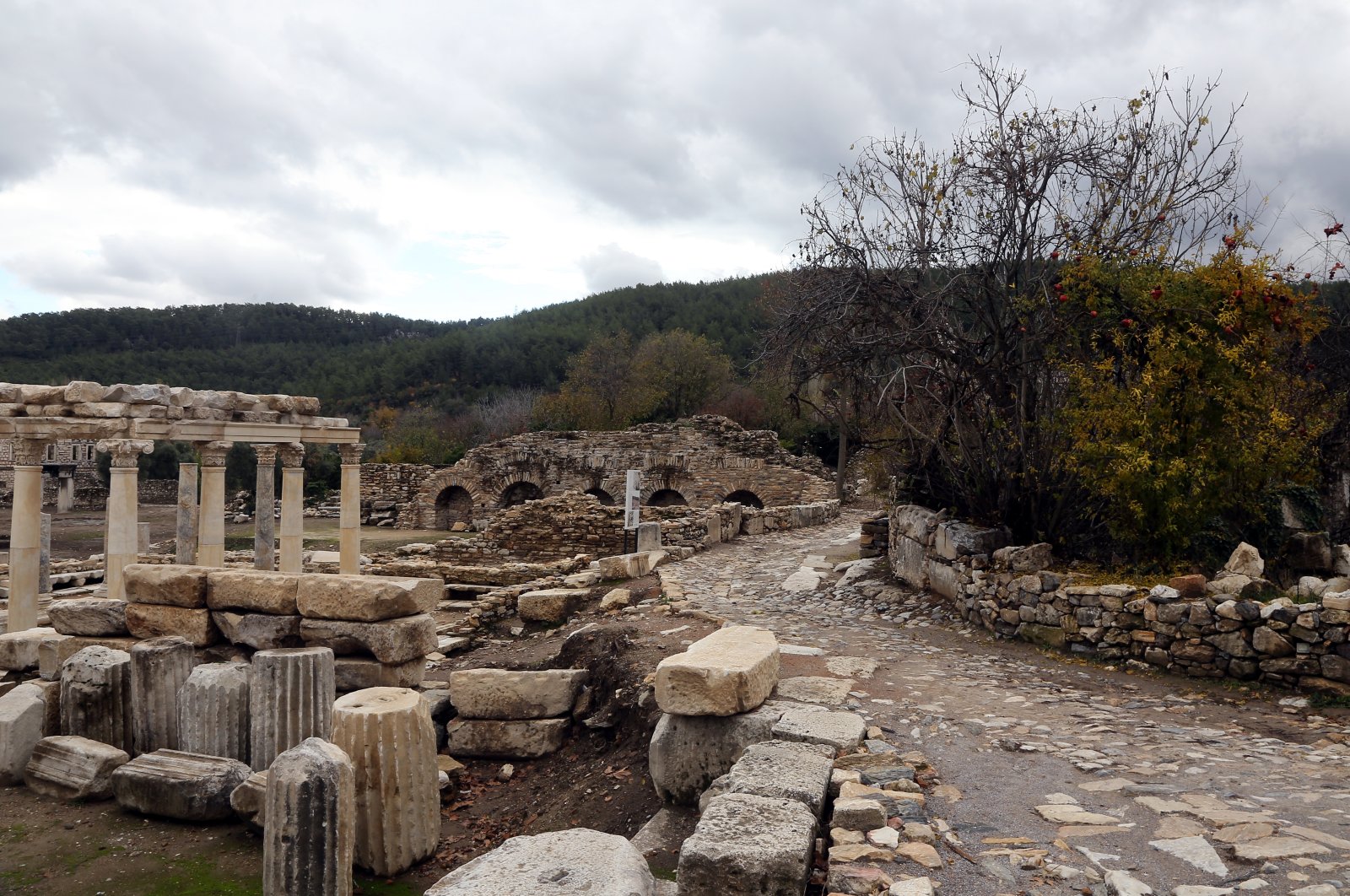
Stratonikeia: City shaped by 5,000 years of history
Stratonikeia, located in the Yatagan district of Mugla, has been continuously inhabited for more than 5,000 years. This ancient city witnessed several major historical shifts, from its time as a Carian settlement to its later role under the Seleucid Empire.
During the third century BCE, Seleucid King Antiochus I renamed the city after his wife, Stratonice, solidifying its significance as a regional power. Archaeological excavations have revealed structures from multiple eras, including Hellenistic, Roman, Byzantine and Ottoman influences.
Today, the city remains a rare blend of ancient and modern life, with families living in homes surrounded by the ruins of past civilizations.
Professor Bilal Sogut, who leads ongoing excavations, explained, “Stratonikeia is one of the few places where every era of history has left its mark. The city tells the story of the continuous life that has existed here for 5,000 years.”
The city’s long history as a cultural crossroads makes it a symbol of the region’s resilience and continuity.
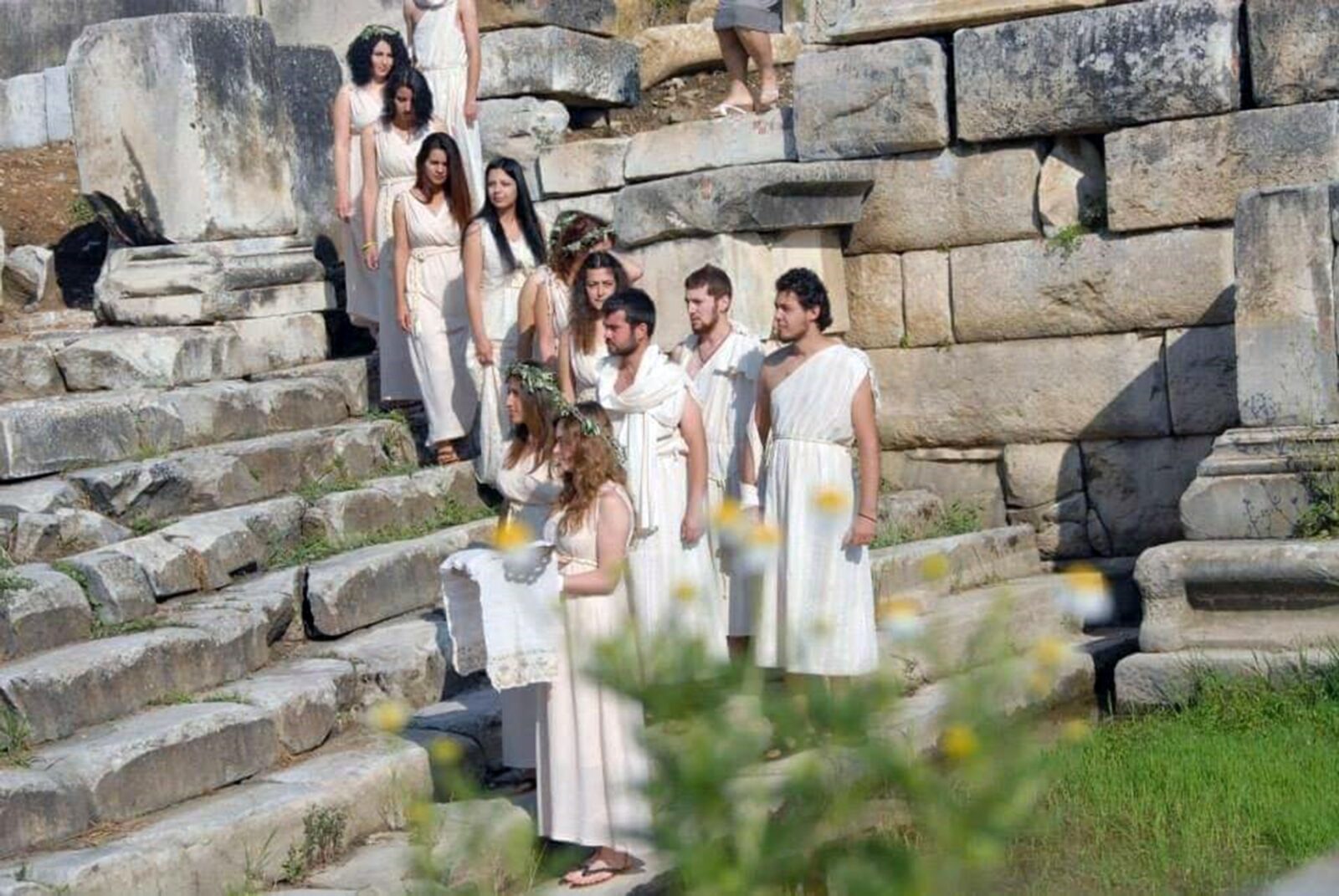
Ancient key ceremony rooted in sacred traditions of Lagina
The Hekatesia key-carrying ceremony has deep historical significance. In ancient times, the route from Lagina’s Hekate Sanctuary to Stratonikeia was not merely symbolic, but represented a political and religious bond.
Young women, dressed in sacred garments, would sing hymns as they carried the key from Lagina to Stratonikeia, where they offered it in a show of allegiance. This act reinforced the connection between the two cities and underscored the importance of the goddess Hekate, who was venerated in Lagina.
Visitors to the Lagina Hekate Sanctuary today still recognize its spiritual importance, leaving offerings of fruit and keys. Professor Sogut remarked: “Even now, people continue to believe in the sacredness of this site.”
The re-enactment of the key-carrying ceremony reflects the enduring legacy of these ancient traditions and their significance for both local and global heritage.

